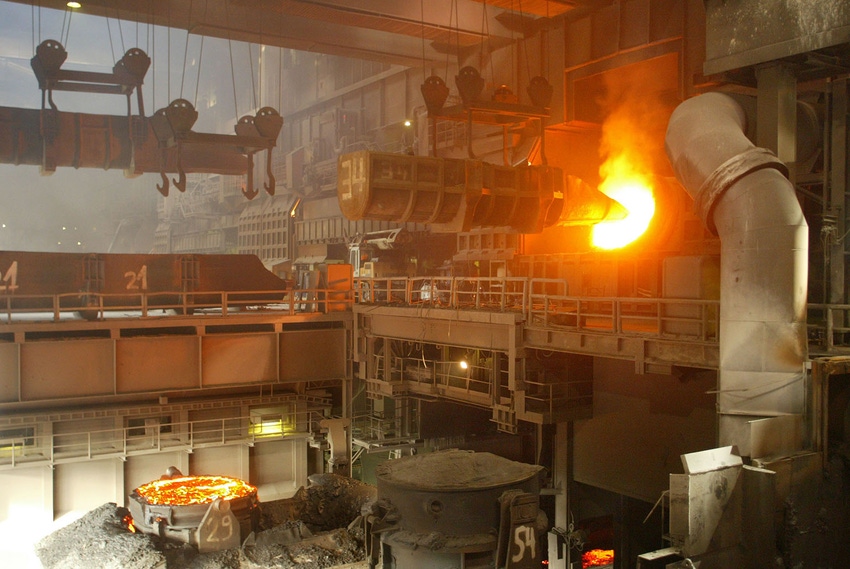Legislative Watch: Steel tariffs proposed, will China retaliate? ’17 was banner year for red meat exports; food safety user fee opposed; California proposes adding processed meats to Prop. 65.

The Department of Commerce is recommending to the White House that significant tariffs and quotas be placed on steel and aluminum imports. This follows the recent action taken by the administration in putting tariffs on solar panels and washing machines.
The Commerce Department is recommending a global tariff of at least 24% on all steel imports from all countries and a tariff of at least 53% on all steel imports from Brazil, China, Costa Rica, Egypt, India, Malaysia, Russia, South Korea, South Africa, Thailand, Turkey and Vietnam. It is also recommending a 7.7% tariff on aluminum imports with a 23.5% tariff on aluminum products from China, Hong Kong, Russia, Venezuela and Vietnam.
There is concern within U.S. agriculture on what will be the reaction from China. With the recent announcement of tariffs on solar panels and washing machines, China started an anti-dumping procedure against U.S. grain sorghum. What U.S. product could be next if China reacts to any increase in tariffs on steel? A major concern is soybeans. China is the largest export market for U.S. soybeans, representing 30% of U.S. soybeans exports.
President Trump has until April 11 to make a decision on steel imports and April 19 on aluminum. He has the option of accepting one or more of the Department of Commerce’s various recommendations, with or without changes, or do nothing.
2017 was a banner year for red meat exports
Last year was a very good year for U.S. red meat exports, breaking previous records in beef export value and pork export volumes according to the U.S. Meat Export Federation.
Pork export value was approximately $6.5 billion last year, which was an increase of 9% compared to 2016. This was the second highest year for pork exports by value. Pork export volume reached a record of 2.45 million metric tons. This was an increase of 6% over the previous record set in 2016. South America was a growing market for U.S. pork exports last year. With sales booming in Columbia and Chile and a growing market in Peru, exports to South America were up 57% in volume and 58% in value. Pork exports accounted for 26.6% of production and export value per head slaughtered was $53.47.
Beef exports reached a record value of $7.27 billion which is 15% over 2016. This is 2% higher than the previous record of $7.13 billion in 2014. Beef exports totaled 1.26 million mt, 6% over 2016. This is the fourth-largest volume on record. Beef exports represented 12.9% of production in 2017 and export value per head of fed slaughter was $286.38. Exports to China and Hong Kong showed significant increases — 19% in volume and 34% in value.
Meat and livestock groups oppose administration’s user fee proposal
Meat and livestock groups sent a letter to the House and Senate Appropriations and Agriculture Committees opposing the administration’s proposed user fee for government mandated food safety inspection programs. President Trump’s Fiscal Year ’19 budget proposes Food Safety and Inspection Service user fees beginning in Fiscal Year ’20 that would cost the industry $660 million per year.
The groups say that “governmental food safety activities that would be financed by the industry user fees are both mandated by statute and central to the FSIS mission. The proposal would remove any incentives for FSIS to manage program costs, develop efficiencies or improve results.”
Those signing the letter were the American Sheep Industry, Association National Cattlemen’s Beef Association, National Chicken Council, National Milk Producers Federation, National Pork Producers Council, National Turkey Federation, North American Meat Institute and the Shelf-Stable Food Processors Association
California resolution proposes adding processed meats to Prop. 65
A resolution has been introduced in the California State Senate urging the California Office of Environmental Health Hazard Assessment to add “processed meat for consumption” (bacon, deli meats, hot dogs, etc.) to the state’s list of chemicals that California believes cause cancer. This procedure falls under Proposition 65.
Proposition 65 requires that if a product contains a listed chemical that is believed to cause cancer, that product must have a warning label. However, the Federal Meat Inspection Act and the Poultry Products Inspection Act have preemption provisions. Thus, federally inspected meat and poultry products would not have to bear such a label.
If OEHHA proceeds with a listing procedure, there will be a process for the meat industry and others to voice their opinions and concerns.
About the Author(s)
You May Also Like



